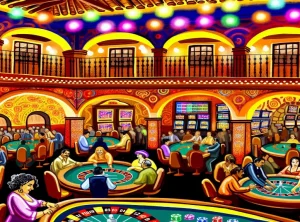
Blackjack is one of the most acclaimed casino table games, played against the dealer with an initial bet being placed. Additionally, players may double down, split pairs or surrender hands during gameplay.
Some casinos feature tables with low minimum and high maximum betting limits, each featuring different minimum and maximum bets for inside and outside bets.
Basic strategy
Basic strategy in blackjack is a set of rules designed to maximize your winning chances at the casino, and reduce house edges to below one percent over time. Even using optimal basic strategy may still result in losses from some hands; that is why it is advisable to maintain at least 20 times your table minimum bankroll as insurance.
To apply basic strategy, first locate a blackjack chart showing both the dealer’s up card and your hand values, along with where they intersect on the chart. This field indicates what actions should be taken based on these intersections – for instance if the dealer shows an ace and your total is 12, stand. Alternatively if they reveal a face card and your total equals 12 then double down would be appropriate.
Note that many blackjack charts provide instructions for both hard and soft totals, where soft totals refer to any hand without an ace, and hard totals can include an ace valued either 1-11. Doubling down should only be done if either your total is 10 or higher or when either the dealer holds an ace; even money bets on blackjack should never be accepted, since taking even money means getting paid only one time instead of three if your blackjack matches up with someone who already has one.
Insurance bets
Insurance bets in blackjack are side bets that provide players with a chance of recovering some or all of their original bet if the dealer has a blackjack hand. Insurance bets typically made when a dealer’s face up card is an ace and all bets have been placed. Once bets have been made, once all have been revealed the dealer may reveal his hole card which may reveal itself as being 10; all players who took insurance would win; however the expected value is negative meaning over time they will lose money this form of wager.
Insurance bets increase your outlay per hand, which is why they should be avoided where possible. Furthermore, they only protect from losses on one hand at the table and do not increase chances of defeating the dealer; rather they just benefit casinos by decreasing player house edges overall.
Insurance bets in Blackjack should generally be avoided, even on tables offering 3:2 returns for blackjack. On average, players tend to lose more money through insurance bets than they win and this strategy should always be considered risky – the only way this type of bet could ever become profitable would be using basic strategy and card counting techniques to tilt the odds in your favor.
Splitting pairs
Splitting pairs in blackjack is one of the fundamental aspects of the game and can make or break your chances of victory. Done correctly, splitting pairs can double your hand value and increase chances of beating the dealer; but taking this decision lightly should not be done so easily; knowing when is best is dependent upon knowledge, experience and context.
When you receive two cards on the initial deal, you have the option to divide them into two separate hands by placing an equal bet in both. This strategy can be very powerful; however, there are risks involved as well. Most commonly split pair are aces or eights while fives should never be split due to dealer having low cards upcard and placing you at an advantageous advantage position.
When considering when and how best to split pairs in blackjack, one key element is the dealer’s upcard; this will provide an indication of how much to wager. As a general guideline, 2s and 3s should generally be split against an upcard of 2, 3, or 4, while 6s should only be divided if it carries low to middle value – otherwise it would be wiser to hit them instead.
Double down
Doubling down is an option in blackjack that allows you to double your bet and receive one additional card, improving your hand without risking too much money. While doubling down can be useful in improving a hand without risking too much, it should not be used on hands with high values or strong upcards as this increases the risk of busting or receiving weaker hands; similarly, do not double down when holding sevens as this may lead to busting or weaker results.
At most casinos, the double down window opens after being dealt your first two cards and can only be utilized once; this rule helps ensure fairness in gameplay by preventing players from gaining an unfair edge in play.
When it comes to doubling down, showing an 11 is usually an ideal opportunity to do so as there’s a high likelihood that you could hit blackjack or close to it. On any other hand, double downs should be avoided as busting could quickly wipe out your entire stake and lead to further losses. Keep in mind that doubling doesn’t guarantee wins; rather it helps increase chances of beating the dealer; never double down when trying to chase losses as this can only compound them further.
